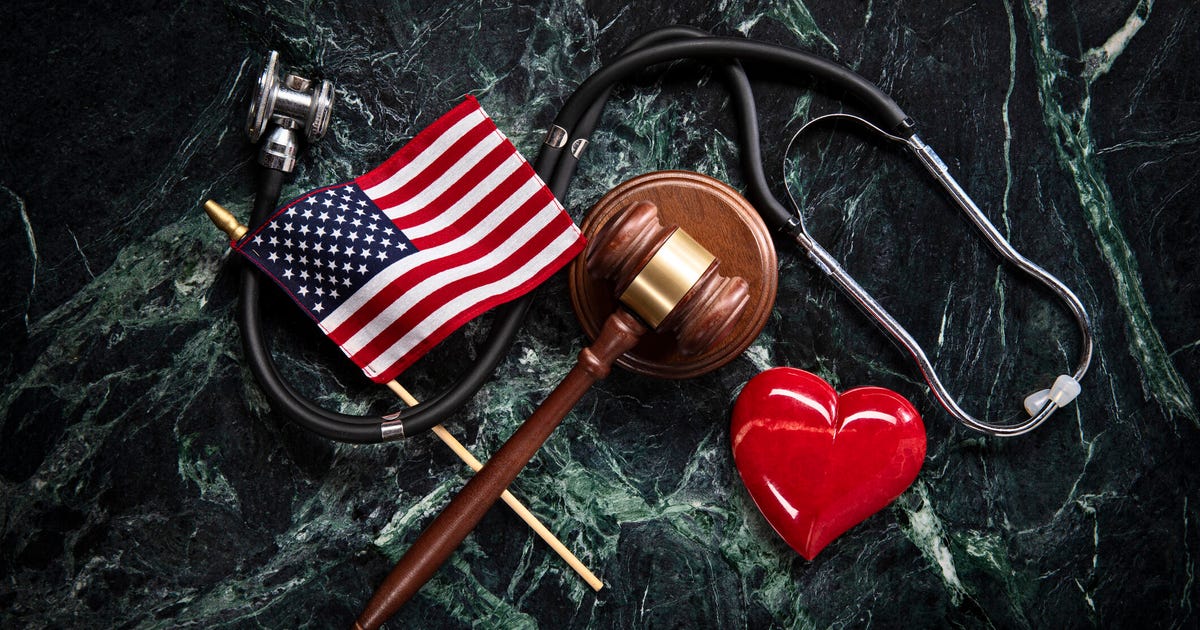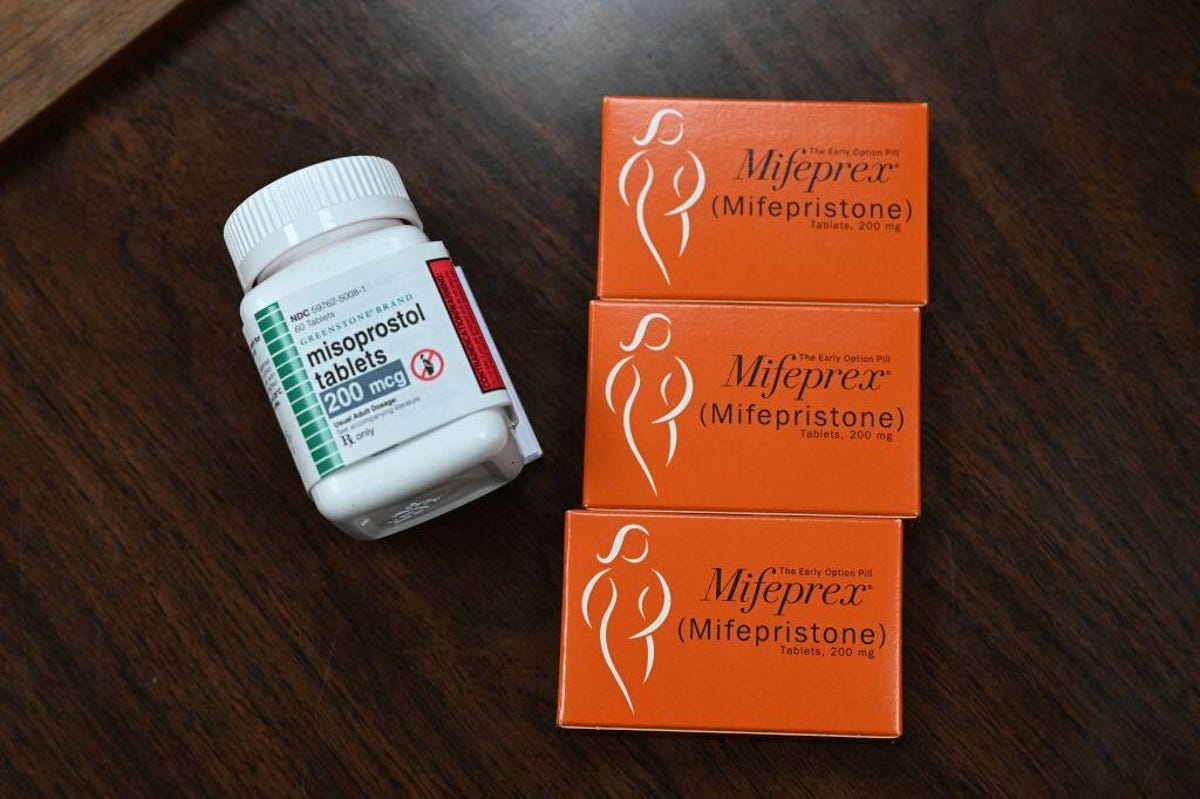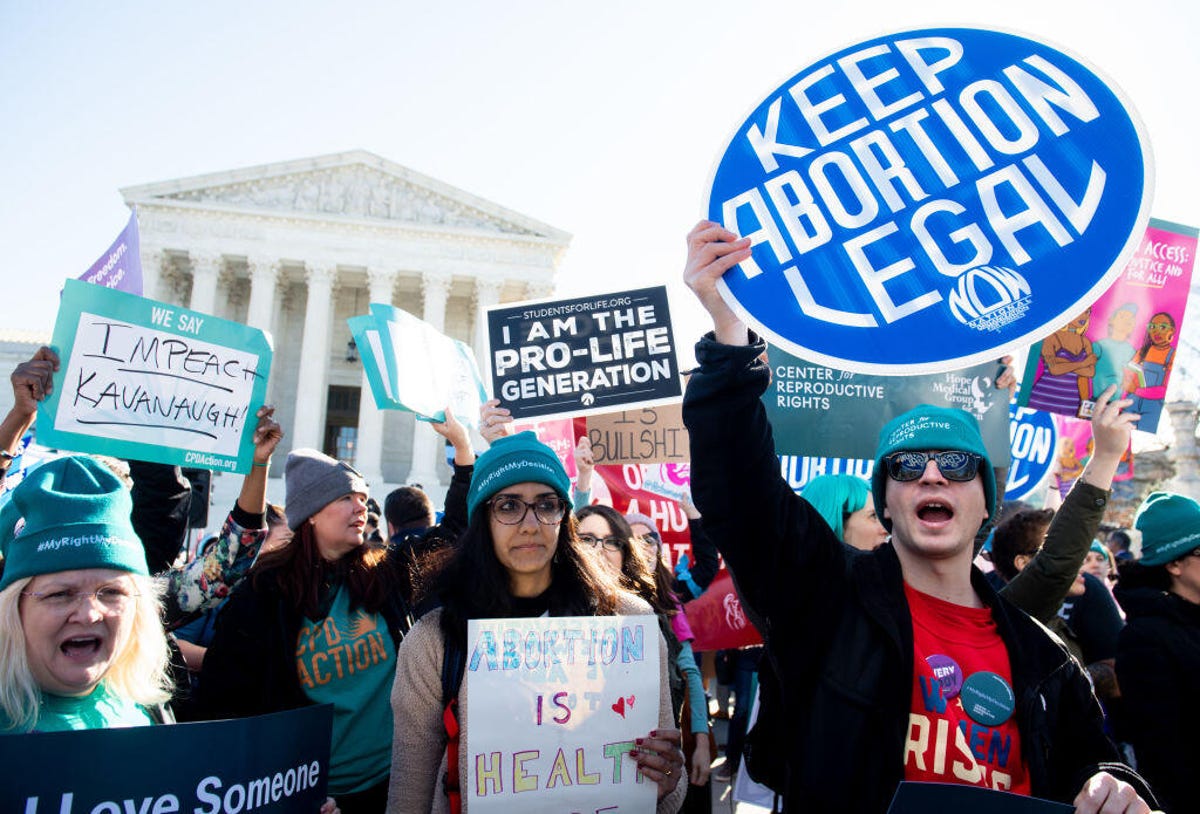Can states ban people from other states can you banned from a state can can can the can can can can cans the can can seattle what states can an 18 year old drink what states can you drink and drive what states is abortion illegal what states border canada what states is monkeypox in what states are in the powerball lottery what states are in tornado alley

What States Can and Can't Do When Banning Abortion
For more information about your reproductive health rights and related federal resources, you can visit the US government's
Reproductive Rightssite.
Whether someone can get an abortion or related medical procedure mostly hinges on which state they live in after the Supreme Court overturned Roe v. Wade last month and ended the constitutional right to abortion. But the switch from federal protection to state law isn't straightforward and has led to confusion and misinformation on what pregnant patients and physicians can do.
In this still developing landscape, how confident can people be that their treatment is still legal?
"The answer to all your questions is 'Who the heck knows,'" said Dr. Louise Perkins King, a surgeon and bioethicist at Harvard Medical School. "And that's the problem."
The US Department of Health and Human Services issued guidance on July 11 reminding physicians of their responsibilities under the existing Emergency Medical Treatment and Labor Act, or EMTLA, which supports the need to treat and stabilize patients in an emergency, including pregnant patients who may require an abortion. Days later, Texas sued the Biden administration over the law, which allows for medical assistance to save the life of the mother, because, Texas Attorney General Ken Paxton said, it "seeks to transform every emergency room in the country into a walk-in abortion clinic."
On Tuesday, a judge in Texas blocked the EMTLA guidance, so physicians in that state may no longer be protected by federal law if they perform an abortion when they deem it medically necessary but it falls outside of Texas' interpretation of a life-endangering pregnancy. Physicians nationwide who are members of the American Association of Pro-Life Gynecologists and Obstetricians or the Christian Medical and Dental Association are also exempt -- a total of about 18,000 health care providers, according to the court document.
Texas' new trigger law -- which will be in effect on Aug. 25 -- bans all abortions except when the pregnancy puts the mother "at risk of death or poses a serious risk of substantial impairment of a major bodily function." Physicians who perform an illegal abortion will be committing a felony. It doesn't make exceptions for rape, incest or fetal abnormalities, and it also doesn't make an exception for when the pregnant person's risk of death would come from a "claim or diagnosis" that they'll be hurt or might die in the future. (This could be interpreted to mean a doctor can't provide an abortion if a woman threatens to die by suicide because she has depression.) All abortions are currently banned in Texas after the state's Supreme Court ruled that a law from the 1920s could stand.
Legal battles within some states will continue to shape post-Roe America, with the landscape changing by the day. And lawsuits like the one in Texas clarify the country's stance on whether state law preempts federal rule on abortion or reproductive health care. Basically, can federal regulations trump state law?
"There's going to be cases that are going to have to determine this question," I. Glenn Cohen, a professor and bioethicist at Harvard Law School, said.
The argument over medication abortion access -- which is banned or restricted in many states but still available to people if they order it (not without risk) online -- will likely also be one of the first big court cases post-Roe, Cohen said. Questions of whether federal regulations on medication abortion conflict directly enough with state restrictions will continue to be center stage.

Medication abortion, for use in early pregnancy, accounts for more than half of abortions in the US. Restricting the pills is the new frontier of abortion bans.
Robyn Beck/Getty ImagesOther federal guidance issued by the Biden administration includes a reminder to pharmacists that they are required to fill medication and birth control prescriptions for patients. Failing to do so is discrimination based on pregnancy status. This was in response to the many reports of women having treatment delayed or prescriptions denied while health care workers try to navigate around new state laws.
Here's what we know today.
Can states ban abortion pills? Not completely, but some are trying.
Any state with a current total ban on abortion -- including Texas, Oklahoma, South Dakota, Alabama, Arkansas, Mississippi, Missouri and Wisconsin -- also bans medication abortion. Heavy restrictions in other states, including Tennessee and South Carolina, which ban abortion after about six weeks, also extend to medication abortion. This means providers can't prescribe the medication in those states and patients can't fill prescriptions at pharmacies.
"If a state law bans abortion broadly, that includes medication abortions," Elisabeth Smith, director of state policy and advocacy at the Center for Reproductive Rights, told MedPage Today.
But abortion bans and state laws seek to punish abortion providers or people who assist them, not the person seeking the abortion (there's reason to believe this might change in the future). For now, people living in the most restrictive states can still order pills from an overseas pharmacy, including Aid Access. However, the pills could take awhile to arrive and potentially put the person past the point of pregnancy for which the medication is safe and effective (about 10 weeks).

The fate of medication abortion pills in Republican-leaning states centers on mifepristone, the first pill given in the two-dose regimen of medication abortion. Because the US Food and Drug Administration approved mifepristone as a safe and effective way to end a pregnancy over 20 years ago, states shouldn't be able to restrict it, the US attorney general's office argued the same day Roe was overturned. (Misoprostol, the second pill, is used off-label for abortion and miscarriage treatment. It's also used to treat health conditions such as stomach ulcers.)
Whether this federal regulation (and the FDA's stamp of approval) supersedes state laws will need to be decided. Cohen said this is likely to be determined by the Supreme Court as "one of the first post-Dobbs cases."
"It's unclear whether that's going to be a winner of an argument, to be perfectly honest," Cohen said.
Last year, the FDA extended a pandemic-era rule that allowed patients to get medication abortion pills through the mail, instead of requiring them to be prescribed in person. This was seen as a victory for the American College of Obstetricians and Gynecologists and other medical groups, which viewed the in-person requirement as unnecessary for a medication that's safe and effective in early pregnancy.
But states have their own requirements for medication abortion, and providers licensed in Montana can't prescribe pills to patients who travel over from a restrictive state like South Dakota, NPR reported.
Read more: Worries About Post-Roe Data Privacy Put Spotlight on Period Apps

Ectopic pregnancies can't result in a delivery and require medical treatment. Symptoms can start with typical pregnancy signs, including a missed period, but can progress to abdominal or pelvic pain, vaginal bleeding, weakness and more.
Svetlana Gustova/Getty ImagesCan states ban treatment for high risk pregnancies? The HHS says no, but doctors say state laws are restricting care.
Even though the most restrictive states banning abortions leave room for some degree of medical emergency, practicing physicians need to decide where the medical emergency line is – and risk prosecution if a state sees it differently.
This month, the story of a 10-year-old girl who was raped and pregnant and who traveled to Indiana from Ohio, where abortion is banned around six weeks without exception for rape or incest, made headlines. Not only was the physician publicly questioned by Indiana's attorney general on whether she followed state law, but Ohio Attorney General Dave Yost said in the aftermath that the girl should've been able to legally get an abortion under the state law's medical emergency exemption. Ohio's OB-GYNs disagreed.
"It states specifically 'medically diagnosed condition,' and as far as I can tell, adolescent pregnancy is not a medically diagnosed condition that's listed," Dr. Jason Sayat, a Columbus OB-GYN, told the Ohio Capital Journal.
The Department of Health and Human Services reminded physicians and hospitals that if they want to keep their Medicare agreement and avoid "civil penalties," they must treat pregnant patients and provide abortions if necessary as required under the 1986 Emergency Medical Treatment and Labor Act. The EMTLA, now blocked in Texas, outlines certain life-endangering pregnancies that doctors must treat regardless of state law, including ectopic pregnancies, preeclampsia and complications of pregnancy loss.
But that narrow line of abortion exceptions for medical emergencies given by states like Wisconsin is what's troubling Dr. Jennifer McIntosh, a maternal-fetal medicine physician practicing in the state. While Wisconsin's attorney general said he wouldn't enforce a ban, physicians there stopped performing abortions because the state has a pre-Roe criminal statute that prohibits most abortions. The "save the life of the mother" abortion exception language in that law can leave out health conditions which may not be an immediate emergency but can become one down the line.
"Some of what we do is to prevent emergencies from happening," McIntosh said. "To have to wait for an emergency to actually appear puts your patient's life at risk."
The treatment for an ectopic pregnancy is termination, because terminating the pregnancy is the only safe outcome when an embryo grows outside of the uterus, typically in a fallopian tube. Without treatment, the fallopian tube is likely to rupture, which can lead to internal bleeding and death. But some laws, like one in Texas, specifically restrict medications including methotrexate, which has led to access problems for people who are pregnant as well as people who are taking methotrexate for another health reason.
Complicating confusion and risk over how abortion bans will affect treatments for ectopic pregnancies is the fact that more rare types of ectopic pregnancies exist, including ones where the pregnancy is growing inside a C-section scar or other area outside the safety of the main cavity of the uterus -- but still technically in the uterus. These rarer kinds of ectopic pregnancies are also life-threatening, and may be more difficult to diagnose and treat as such in a state that bans abortions with an emphasis on the pregnancy being in the uterus.

States are not prosecuting people who have abortions (yet)
Current state laws -- both those in effect and those in limbo in court -- prosecute other people involved in an abortion, not the person who's pregnant.
But the health impact may be already felt when a doctor is hesitant to treat patients, or pharmacists are reluctant to fill a prescription for mifepristone before interviewing a woman to ascertain whether her pregnancy is already ended and her situation is in line with state law.
"Even in these straightforward cases of basic OB/GYN practice, the laws leave providers questioning and afraid," Dr. Carley Zeal, an OB-GYN in Wisconsin, told The New York Times. "These laws are already hurting my patients."
Aside from hesitancy among health care providers, physicians also fear that worries people have about being prosecuted for having an abortion or miscarriage will stop patients experiencing complications from any kind of pregnancy loss from seeking care.
That's because it was already happening, before Roe was overturned. According to the National Advocates for Pregnant Women, there were over 1,700 arrests or prosecutions of women from 1973 (when Roe became law) to 2020 where their pregnancies were the focus of the case against them.
So will doctors report you if they suspect you had an abortion?
"The vast majority of health care professionals will not do that, because that's not caring for their patients," King said. But, she added, "I'm sure there's a very small, but unfortunately detrimental, minority who might."

Your current access to birth control shouldn't be impacted by the overturn of Roe v. Wade. However, there's reason to believe that could change in the future.
Carol Yepes/Getty ImagesBirth control is still protected under the Affordable Care Act
Right now, IUDs, birth control pills and other birth control methods are legal in all 50 states. And they should also be covered at no out-of-pocket cost for those covered under the Affordable Care Act. The right to birth control is protected under two Supreme Court rulings: Griswold v. Connecticut (1965) and Eisenstadt v. Baird. (Another Supreme Court Case, Burwell v. Hobby Lobby Stores, chipped away a little of that protection, however, finding that some corporations are exempt for religious reasons.)
Plan B or "morning after pill" brands are also not included in abortion bans, because they will not end an existing pregnancy. Most health plans should also cover them.
Legislators in Missouri last year voted to block taxpayer funding for IUDs and emergency contraception, casting doubt that all birth control devices will be protected indefinitely, at least in some states. The claims of legislators like Paul Wieland, a Republican state senator in Missouri, are that anything that has the potential to disrupt a fertilized egg's implantation into the uterus is an abortifacient.
The medical community has been clear that IUDs and emergency contraception do not cause abortions and will not end an existing pregnancy. Copper IUDs work mostly by causing a chemical change in the sperm and egg before they meet, according to the World Health Organization. Hormonal IUDs like Mirena work mostly by thickening cervical mucus so sperm can't reach the egg, and can also prevent ovulation. Plan B and similar pills likely won't work if a person has already ovulated, meaning the chances of it stopping implantation are currently understood to be slim.
Nevertheless, unlikely occurrences or instances where a fertilized egg may be prevented from implanting into a uterus could be called into question in future court cases.
Read more: Could a Post Roe v. Wade World Impact Your Access to Birth Control?
The information contained in this article is for educational and informational purposes only and is not intended as health or medical advice. Always consult a physician or other qualified health provider regarding any questions you may have about a medical condition or health objectives.
Source
Blog Archive
-
▼
2022
(158)
-
▼
December
(42)
- OnePlus 10 Pro Peek Reveals Lots Of Oppo Software DNA
- Facebook Plans To Break Out Its VR, AR Business
- How Gardening Can Help With Climate Change Anxiety
- Google Updates In-App Billing Rules To Allow Rival...
- How Ukraine Raised Over $55M In Crypto To Help Res...
- Amazon Fire TV Cyber Monday Deals That Are Still A...
- Best Smart Home And Appliance Deals Of Prime Day 2022
- Ninja's Do-It-All Coffee Maker Is Down To $120 (Sa...
- Apple Is Redesigning The Home App
- Facebook's Updated Values Include 'Meta, Metamates...
- Fitbit's Cheapest Fitness Band Is Getting A Big Up...
- This Lens Turns A GoPro Into A 3D Camera (hands-on)
- India's Ratan Tata Takes Slice Of Phone Maker Xiaomi
- Good Trouble's Sherry Cola On Why Margaret Cho Is ...
- Essentials To Pack In Your Diaper Bag
- Bill Gates Talks 'Grieving' The Loss Of His Marria...
- 'Prey' Ending And Cool Post-Credits Predator Tease...
- Prop Maker Builds Tiny Iron Man Costume For His Si...
- 2023 Cadillac Lyriq Comes Out Swinging
- What States Can And Can't Do When Banning Abortion
- 'Westworld' Season 4, Episode 6 Recap: 'Fidelity'
- Intel Buys The Industry's First Next-gen Chipmakin...
- Galaxy S21 Ultra 5G Review: Samsung's Premier Phon...
- OpenSea Says At Least $1.7M In NFTs Stolen In Phis...
- Insta360 One RS Modular Action Cam Gets A Big 4K P...
- Tesla Insurance Spreads To Colorado, Oregon And Vi...
- 2023 BMW IX XDrive50 Review: Pleasing Performer, V...
- Netflix Loses 200,000 Subscribers, Counts Password...
- GoPro Hero3+ Silver Edition Review: GoPro Design, ...
- Best Debit Cards For Kids And Teens In September 2...
- Musk Sells About $8.5 Billion In Tesla Stock After...
- 2022 Kia Stinger 2.5T Review: A More Compelling Ba...
- Renter-Friendly DIY Projects You Can Do Right Now
- 12 Of The Best Hidden WhatsApp Features You Need T...
- Here's How Much Energy A Microwave Uses Compared T...
- Polio Found In New York City Wastewater: Health Of...
- 'The Internet's Best Friend': TikTok Comedian Gets...
- How To Enable Snapchat Log-in Verification
- Twitter Shareholder Sues Elon Musk Over Share Acqu...
- Compare FHA Mortgage Rates
- Thunderstorms Delay, Cancel Thousands Of US Flight...
- Steam’s Halloween Sale: Deals On Tomb Raider, Da...
-
▼
December
(42)
Total Pageviews
Search This Blog
Popular Posts
-
Resepi cekodok, resepi cekodok jagung, Jemput Bawang Simple via recipeler.com Jaa's Story: Resepi Cekodok Bawang Ikan Bilis Yang...
-
Apple watch 7 review a slight upgrade compared with crossword apple watch 7 review a slight upgrade compared in spanish apple watch 7 review...
-
Resepi ayam buttermilk susu segar nasional, resepi ayam buttermilk susu segar dutch, resepi ayam buttermilk susu segar wanita, resepi ayam b...

.jpg)
